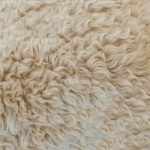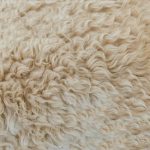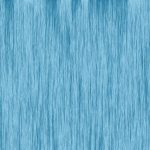When you're considering Dotted Swiss for sensitive skin, you might wonder about its comfort and breathability. This lightweight fabric, often crafted from cotton or synthetic fibers, generally offers a soft touch that many find appealing. Yet, the real question lies in the potential allergens or chemical treatments it may harbor. Are those worth the risk for a beautiful garment? Understanding the nuances of this fabric could make all the difference, especially when it comes to comfort versus style. Let's explore further to see if Dotted Swiss could be your next go-to or a cause for concern.
Table of Contents
What Is Dotted Swiss?
Dotted Swiss is a lightweight fabric made from cotton or synthetic fibers, characterized by its tiny raised dots that create a textured appearance. This charming textile has been popular for various garments, especially in children's clothing and women's apparel. The dotted design not only adds visual interest but also enhances the fabric's breathability, making it a great choice for warm-weather wear.
You'll find Dotted Swiss used in everything from blouses to curtains, showcasing its versatility. When you touch it, you'll notice a delicate softness, which can make wearing it a comfortable experience. This fabric is often employed in fashion to evoke a sense of whimsy and romance, and it can lend itself well to different styling options. Whether you're looking for something casual or fancy, Dotted Swiss can adapt to your needs.
Additionally, the dots are usually woven or embroidered into the fabric, making it a bit more durable than simple flat weaves. So, if you're searching for a fabric that combines style with practicality, you might want to give Dotted Swiss a closer look. Your wardrobe could greatly benefit from this delightful textile.
Properties of Dotted Swiss
Characterized by its unique texture and lightweight composition, Dotted Swiss offers a blend of comfort and breathability perfect for stylish, warm-weather attire. The fabric's distinctive dotted pattern adds visual interest while maintaining a smooth overall feel, making it a favorite for dresses, blouses, and curtains.
You'll appreciate how Dotted Swiss drapes elegantly, allowing for fluid movement without clinging to your body. Its breathability keeps you cool during hot days, while the soft fabric ensures you won't feel restricted. Because Dotted Swiss is often made from cotton or a cotton blend, it's not only lightweight but also easy to care for.
Additionally, the fabric's structure allows it to hold its shape well, so you won't have to worry about sagging or losing form after washing. You can enjoy vibrant colors and patterns, enhancing your wardrobe with stylish options.
Despite being lightweight, Dotted Swiss maintains a decent amount of durability, making it suitable for regular wear. Overall, this fabric combines comfort, elegance, and practicality seamlessly, ensuring you look and feel great in any warm-weather outfit.
Allergens and Irritants in Fabrics
When choosing fabrics like Dotted Swiss, you need to be aware of potential allergens and irritants.
Chemical treatments and dyes can trigger reactions, especially if you're sensitive to them.
Plus, understanding the differences between natural and synthetic fibers can help you make a more informed choice for your skin.
Chemical Treatments and Dyes
Chemical treatments and dyes often hide behind the seams of fabrics, potentially introducing allergens and irritants that can provoke reactions in sensitive skin.
If you have sensitive skin, it's crucial to pay attention to the fabric's treatment process. Dotted Swiss, while visually appealing, may undergo various treatments for durability and appearance. Common concerns include formaldehyde resins, which can cause skin irritation, and synthetic dyes, which might trigger allergic reactions.
Before making a purchase, it's wise to check the label or manufacturer's information. Look for fabrics labeled as “chemical-free” or “organic,” as these materials typically undergo fewer treatments. When shopping, opt for brands that prioritize skin safety and transparency about their processes.
You can also consider pre-washing the fabric to help remove some of these chemicals. However, be aware that washing doesn't always eliminate all allergens or irritants.
If you notice any discomfort, it's best to discontinue use immediately. Ultimately, prioritizing your skin's health means being mindful of the potential impact that chemical treatments and dyes can have on your comfort and well-being.
Natural Fibers Vs. Synthetics
Natural fibers like cotton and linen generally offer a gentler touch for sensitive skin compared to synthetic materials, which often harbor allergens and irritants. When considering what fabrics to wear, you should pay attention to the source of the material. Natural fibers are usually breathable and less likely to cause reactions, while synthetics can contain chemical residues that aggravate your skin.
Here's a quick comparison to help you understand the differences:
| Natural Fibers | Synthetic Fabrics |
|---|---|
| Typically hypoallergenic | Can contain irritants |
| Breathable and moisture-wicking | Less breathable, traps moisture |
| Dyes and finishes may be less harsh | Often treated with chemicals |
| Biodegradable | Non-biodegradable |
Choosing the right fabric for you is essential, especially if you have sensitive skin. Opting for items made from natural materials can significantly reduce the chances of irritation. While you may love the convenience of synthetics, remember that they might not be the best choice for skin health. Your comfort matters, so always prioritize gentle fabrics!
Common Skin Reactions
Fabric choices can trigger a variety of skin reactions, making it crucial to identify possible allergens and irritants in your clothing. Sensitive skin often reacts to certain materials, like synthetic fabrics that can cause irritation or allergic reactions. You'll want to avoid fabrics treated with harsh chemicals, dyes, or finishes, as these can exacerbate your skin concerns.
Common irritants include wool, polyester, and some blends that can lead to conditions like rashes or eczema. If you've got sensitive skin, pay attention to your body. You may experience redness, itching, or a burning sensation, which are signs your fabric isn't compatible with your skin type.
Natural fibers like cotton or linen have a reputation for being gentler, but even they can irritate if they're improperly dyed or treated. Always check garment labels for allergenic substances or synthetic finishes.
When trying new fabrics, consider patch testing by wearing a small piece of the material against your skin for a few hours. This can help you determine if it'll be a friend or foe.
Dotted Swiss Vs. Other Fabrics
When considering options for sensitive skin, Dotted Swiss stands out against a range of other fabrics due to its unique texture and breathability.
It's gentle on your skin, making it a great choice compared to alternatives like polyester or rough cotton. You might find that other fabrics can cause irritation, heat, or even discomfort.
Here's how Dotted Swiss compares:
- Softness: Unlike typical cotton blends, Dotted Swiss has a softer touch, perfect for delicate skin.
- Breathability: It allows air circulation, reducing sweat and overheating, which is essential for comfort.
- Hypoallergenic: Dotted Swiss fabrics are less likely to trigger allergic reactions compared to synthetic fibers, giving you peace of mind.
- Durability: While it feels light and airy, Dotted Swiss maintains its structure and quality, promising longevity without compromising on comfort.
Choosing Dotted Swiss over these other fabrics can make a significant difference.
You deserve to wear materials that feel great against your skin and don't add to your sensitivities. Dotted Swiss could be your new favorite fabric!
Personal Experiences and Reviews
Many users rave about how Dotted Swiss feels gentle and soothing against their sensitive skin. You'll find countless reviews highlighting its soft texture, which many describe as lightweight and breathable. This fabric often becomes a favorite among those who struggle with irritation caused by rough materials.
People appreciate that Dotted Swiss doesn't cling to the body, allowing for a comfortable fit without chafing. One user mentioned how it kept them cool during warm weather, minimizing discomfort. Additionally, users have noted that the polka dot patterns add a stylish touch without compromising comfort.
However, it's essential to consider that reactions can vary. A small percentage of individuals report mild irritation, possibly due to the fabric's composition. It's advisable to check the manufacturer's recommendations if you're particularly sensitive to specific materials.
Recommendations for Sensitive Skin
If you have sensitive skin, look for Dotted Swiss garments made from 100% cotton or a cotton blend, as these options are less likely to irritate. Choosing the right fabric can make all the difference in your comfort and confidence.
Here are some recommendations to ensure you're selecting the best options:
- Opt for Breathability: Fabrics that allow air circulation help keep your skin cool and reduce irritation.
- Check for Chemical Treatments: Avoid garments with harsh dyes or chemical finishes, as these can provoke reactions.
- Prioritize Softness: Here's where quality matters! Choose Dotted Swiss with a soft texture that feels gentle against your skin.
- Look for Seam Details: Search for designs with flat seams or tag-free labels to prevent chafing and discomfort.
Frequently Asked Questions
Can Dotted Swiss Be Used for Baby Clothing?
Yes, you can use dotted swiss for baby clothing. Its lightweight texture and delicate appearance make it an adorable choice. Just ensure it's pre-washed and soft to keep your baby comfy and happy.
How Should Dotted Swiss Be Washed and Cared For?
To wash and care for dotted Swiss, you should machine wash it on a gentle cycle using cold water. Avoid bleach, tumble dry on low, and iron on a low setting if needed.
Is Dotted Swiss Suitable for All Seasons?
Dotted Swiss works well in various seasons. Its lightweight nature keeps you cool in summer, while layering it with warmer fabrics makes it cozy for winter. You'll appreciate its versatility throughout the year, no matter the occasion.
What Are the Environmental Impacts of Dotted Swiss Fabric Production?
Dotted Swiss fabric production can result in water pollution from dyes and chemicals. It's vital you consider sustainability when choosing fabrics, as environmental impacts affect ecosystems and communities. Look for eco-friendly options to minimize harm.
Are There Any Recommended Brands for Dotted Swiss Fabric?
When searching for dotted swiss fabric, consider brands like Joann, Fabric.com, and Mood Fabrics. They offer various patterns and qualities, ensuring you'll find something that suits your style and needs. Always check customer reviews for guidance!
- How Does Ring Spun Cotton Affect Garment Fit and Shape Retention? - August 13, 2024
- What Are the Challenges in Producing Ring Spun Cotton? - August 13, 2024
- Is Ring Spun Cotton Suitable for Plus-Size Clothing? - August 13, 2024







